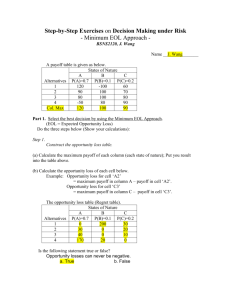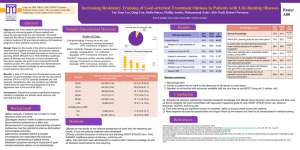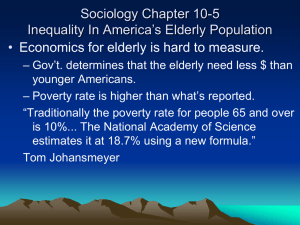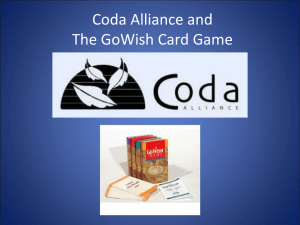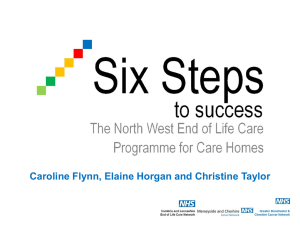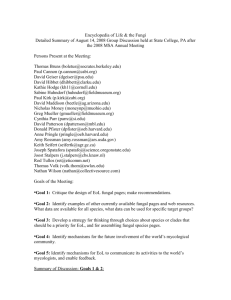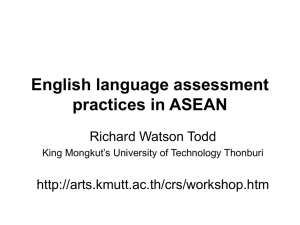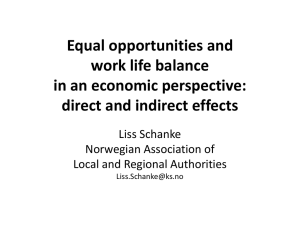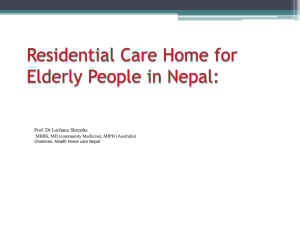Sooyoun Han, CareRights, Republic of Korea
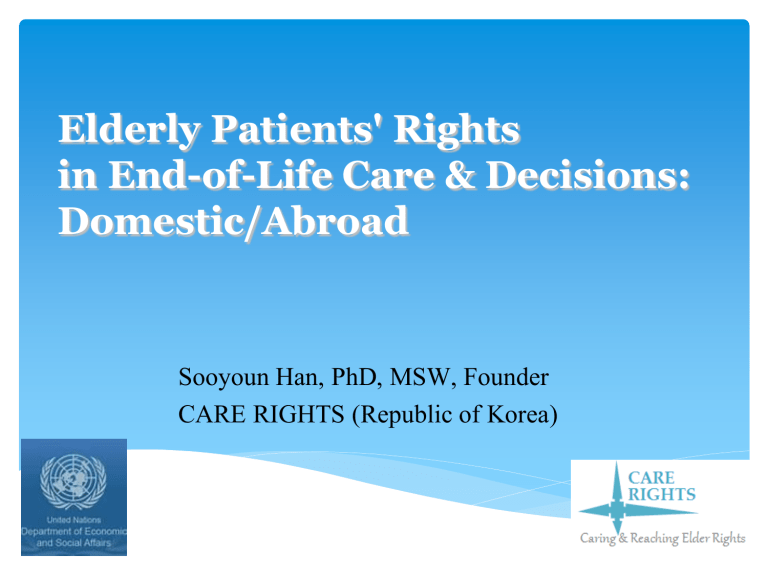
Elderly Patients' Rights in End-of-Life Care & Decisions:
Domestic/Abroad
Sooyoun Han, PhD, MSW, Founder
CARE RIGHTS (Republic of Korea)
Increase in World Ageing and
International Migration
The older population is itself ageing. Globally, the share of older persons aged 80 years or over (the “ oldest old ” ) within the older population was
14 percent in 2013 and is projected to reach 19 percent in 2050.
If this projection is realized, there will be 392 million persons aged 80 years or over by 2050 –more than three times the present number
(U.N. Department of Economic and Social Affairs, 2013)
The number of international migrants worldwide reached 232 million in
2013, up from 154 million in 1990. The global population of international migrants is growing at a rate of about 1.6 percent per year (U.N. DESA, 2013).
Globally, there are close to 26 million migrants aged 65 and over. These older migrant represent 11% of the total migrant population (U.N.
Population Division, 2013)
Figure 1: Age Distribution Among International Migrants, 2013
Increase in Ageing and Migration in South Korea
South Korea has the fastest growing ageing population in Eastern Asia.
In 2011, 2,128 people reverse migrated to South Korea from the U.S, which marked the largest population of reverse migrators to South Korea that year.
(Korean Ministry of Foreign Affairs, 2012).
95,234 American Nationals aged 60 years or older entered South Korea in 2011: 14,708 of them remained in the country for three or more months with registered foreigner status from the U.S. (Han, 2012).
Figure. 2.
International
Migration, 2013
Identified Problems in Elderly Patients’ EOL
Care & Decisions, Domestic/Abroad in South Korea
1.
Multidimensional Understanding about Elderly Patients’
Autonomy by Family Norms on EOL Care & Decisions
Cultural ideas and expectations for family caregiving play a crucial role in the EOL care & decision making process: Many Asian countries consider these discussions taboo and filial impiety.
Often, elders do not understand the concept of patient autonomy. Thus, EOL decisions are relegated to family caregivers (Kwon, 2010) .
Korean healthcare staffs rarely discuss issues related to EOL care directly and privately with the elderly patients. In fact, they are often excluded entirely from the EOL decision making process (Han & Lee, 2013).
Identified Problems in Elderly Patients’ EOL
Care & Decisions, Domestic/Abroad in South Korea
2. Lack of Health Care Legislation Regarding
EOL Care & Decisions
Lack of Health Care Legislation promoting Advance Directives raises the risk of immature EOL decisions that could result in healthcare deficits such as neglect, abuse, and discrimination for elderly patients’ EOL care & decision, domestic/abroad.
Differences in legal systems and health insurance plans among countries in
EOL care & decision results in lack coordination in upholding the
Emergency Medical Service Act and utilizing the Emergency Service Fund
(ESF) to aid domestic and foreign elderly patients.
Contingent Disparities to Domestic/Abroad
Elderly Patients and Their Family Caregivers in EOL Care and Decision
1. Violation of Human Rights
“
Older persons should receive medical care only upon their free and informed consent, and may freely withdraw consent at any time.”
(Recommendation CM/Rec(2014)2, Council of Europe).
Domestic and foreign elderly patients are too often deprived of their rights to informed consent during EOL care & decision in South Korea.
Domestic and foreign elderly patients’ desire to refuse aggressive life-sustaining treatments may not be fully preserved if they are unable to make EOL decisions at the time of service in South Korea.
Most elderly patients, domestic or foreign, in South Korea are often administered unwanted aggressive life-sustaining treatments without protection from culturally-designed, advanced EOL decision making process that makes available and promotes pain-free and comfortable hospice care .
Video Clip
Contingent Disparities to Domestic/Abroad
Elderly Patients and Their Family Caregivers in EOL Care and Decision
2. Health Care Expenditure for Unmet Needs
The Korean Emergency Service Fund (ESF) expends one third of the total budget for emergency care to patients from abroad, who are also funded partially by travel insurance and private medical insurance. However, unmet needs still remain due to insufficient development of health care protocol in
EOL care & decision making.
Of U.S. Medicare decedents (85+ years of age), who required Intensive Care
Unit/Coronary Care Unit services in their last 30 days of life varied by race:
White (21.3%), Black (26.2%), and Other (27.9%).
Percentage of Medicare decedents (age 85+) who died in an in-patient/hospital setting varied by ethnicity: Asian (43.6%), Hispanic
(41.1%), Non Hispanic Black (38.0%), and Non-Hispanic White (31.1%).
Figure.3 :65+ Medicare Decedents’
Place of Death by Ethnicity (U.S.)
Figure.4.: Preliminary Data on
Place of Death by Country in E.U.
Sources: United States: Weizen SMS et al. (1) ; England and Wales: Office of National
Statistics 2000; Switzerland: extrapolations from Federal Statistics 1985; France:
INSERM 1999. Netherlands: Central Office of Statistics in the Netherlands, 2000, M
Ribbe, personal communication. Germany: Thomas Schindler, personal communication.
Ireland: Julie Ling, personal communication.
Note: Data from different countries are collected in different ways and sometimes not at all. This has limited the comparison that can be drawn, but highlights the need for health care systems across Europe to begin to collect this information routinely. Some 15% of deaths in the Netherlands also occur in residential homes for the elderly, and these are not included in the graph above.
Contingent Disparities to Domestic and/or
Abroad Elderly Patients and Their Family
Caregivers in EOL Care and Decision
3. Unsolved Emotional Complications and Bereavement
Korean family caregivers who made EOL decisions to admit their elderly parents and/or spouses into Hospice programs experienced tremendous grief, loss, guilt, anger, and confusion with regard to their decision on behalf of their parents and/or spouses (Han & Kim, 2013).
In South Korea, social workers in a healthcare settings such as LTC practices, help elderly patients and their family caregivers in the EOL decision making process but lack structured education and training in specific communication skills related to EOL care & decision making (Han, 2014).
“Murder of A Lineal Ascendant”:2013
Case citation: Uijeongbu District Court, 392.
Defendants: Son, Daughter, and Wife of the Victim
Victim: Father and Husband to the Defendants
Case: The victim got diagnosed with terminal stage brain cancer in January of 2013.
His daughter, one of the defendants, was his primary caregiver who covered his medical cost ($300) and provided for the rest of the family with her monthly income ($1,500) ever since. The victim continually requested his death to eliminate his terrible pain. The daughter conspired with her brother to grant the victim’s wish. The victim’s wife was present as witness .
Clauses:
Article 250 - Section 2 of Criminal Code:
Whoever kills one’s own or spouse’s lineal ascendants shall be sentenced to death or more than seven years in prison
Article 30 - Criminal Code:
When two or more persons jointly committed a crime, a self shall be punished for the sin of the principal offender
Verdict : Son & Daughter were found guilty and sentenced to serve 3 years and
6 months in prison. Wife was found guilty and sentenced to serve 1 year and 6 months in prison.
International Enactment for
“EOL Care & Decision Act “about
Domestic/Abroad Elderly Patients’ Rights
Directions in the Madrid Plan of Action on Ageing
Advancing Health and Well-Being into Old Age
“Universal and equal access to health-care service for elderly patients’ as well as their family caregivers in their EOL care and decision”
Care Rights provides Hospice Shelter Program to domestic and foreign elderly patients during their EOL care & decision making process to promote comfortable, and culturally-designed care.
In diaspora communities, hospital ICUs, homeless shelters, prisons and any setting where human rights in their final stages of life may be deprived, we should take extra concern to protect them.
International Enactment for
EOL Care & Decision Act about
Domestic/Abroad Elderly Patients’ Rights
Directions in the Madrid Plan of Action on Ageing(2002)
Advancing Health and Well-Being into Old Age
“Training of care providers and health professional for elderly patients’ in their EOL care and decision”
Care Rights provides Psycho-Educational Intervention Program for domestic and foreign elderly patients and their family caregiver in EOL care & decision with evidence-based, cost-effective and culturally-designed.
Psycho-Educational Intervention Program improves family caregivers’ understanding and their ability to navigate the EOL decision making process (Han et al, 2013).
References
1.
2.
3.
4.
5.
6.
U.N. Department of Economic and Social Affairs (2013). World Population Polices 2013. New York: U.N.
U.N DESA. (2013). World Population Ageing 2013. New York: U.N.
http://www.un.org/en/development/desa/population/publications/pdf/popfacts/popfacts_2013-4.pdf
Korean Ministry of Foreign Affairs (2012) Diplomatic White Paper.
www.mofa.go.kr/ENG/policy/whitepaper/index.jsp?menu=m_20_160
Han, S. B. (2012, 05 03) Rush of reverse migration due to expensive medical cost in abroad. Seoul
Newspaper http://www.seoul.co.kr/news/newsView.php?id=20120503010010 .
Kwan , Iro & Bae, H.A. (2011). A Narrative Analysis of Ethical Issues Regarding End-of-Life. J of Korean
Medicine & Ethic, 14(2). 157-170.
Han, S. K. & Lee, H.J.(2013). A Discussion on Elderly Patients and their Family Caregivers’ Decision
Making for Life Sustaining Treatments. GRI, 15(2).71-91.
7.
Council of Europe (2014). The Promotion of Human Rights of Older Persons, Recommendation CM/Rec(2014)2.
8.
Federal Interagency Forum on Aging Related Statistics.(2013). Older Americans 2012 from http://www.agingstats.gov/agingstatsdotnet/Main_Site/Data/2012_Documents/docs/EntireChartbook.pdf
.
9. WHO (2004). The Solid Facts, Palliative Care from http://www.euro.who.int/__data/assets/pdf_file/0003/98418/E82931.pdf?ua=1
10. Song, K.M., Kim, Y. S., & Lee, Y. H. (2008). Legalistic Study of the Subrogation Payment in Emergency
Medicine. The Korean Study of Law and Medicine, 9(2), 139-179.
11. UN, Economic and Social Council (2012). Report of the UN High Commissioner for Human Rights.
Substantive Session
12. Han, S.K. & Kim, T.H.(2013).Desperate Family Caregivers and EOL Decision of Elders with Dementia in S. Korea. AAA Annual
Conference, Chicago presented in the Round Table Discussion.
13. Han, S.K.(2014). A Study of Social Workers’ Understanding of EOL decision and of their Role in Life Sustaining Treatment
Decision Making of Elderly Patients’ and their family caregivers in LTC. GRI (under reviewed).
14. Han, S.K., Kim, John, Han, Jason, Lee, H. J., & Park, S.Y.(2013). The Effects of an Psycho-Educational Intervention Program on Family Caregivers’
Understanding about EOL decision for Korean Immigrant Elderly with Dementia K. J of Social Welfare Research, 35. 1-23.
